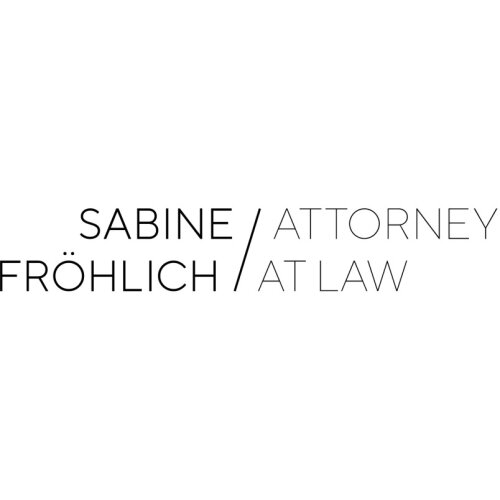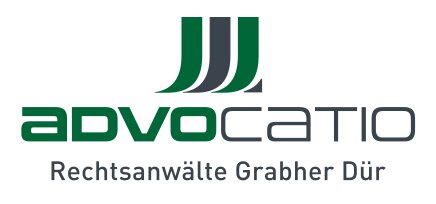Best Financial Services Regulation Lawyers in Liechtenstein
Share your needs with us, get contacted by law firms.
Free. Takes 2 min.
Or refine your search by selecting a city:
List of the best lawyers in Liechtenstein
About Financial Services Regulation Law in Liechtenstein
Financial Services Regulation in Liechtenstein is characterized by a robust legal framework designed to ensure stability, transparency, and integrity within the financial market. This is achieved through a combination of local legislation and compliance with international standards, mainly due to Liechtenstein's membership in the European Economic Area (EEA). The primary regulatory body overseeing financial services is the Financial Market Authority (FMA) Liechtenstein. The FMA ensures the soundness and correct operation of financial institutions, including banks, insurance companies, and investment firms.
Why You May Need a Lawyer
There are several situations where you might need legal assistance in the area of Financial Services Regulation in Liechtenstein. These include:
- Compliance Issues: Navigating the complex array of regulatory requirements for your financial institution.
- Licensing: Assisting with obtaining necessary licenses to operate legally within Liechtenstein.
- Dispute Resolution: Handling disputes with regulatory bodies or other financial entities.
- Penalties and Sanctions: Defending against regulatory infractions and ensuring proper representation.
- Cross-border Transactions: Managing international financial operations in alignment with Liechtenstein's laws.
Local Laws Overview
The financial services sector in Liechtenstein is governed by several key pieces of legislation:
- The Financial Market Supervision Act (FMSA): This law authorizes the Financial Market Authority (FMA) to regulate financial markets and enforce compliance.
- Due Diligence Act (DDA): Focuses on anti-money laundering and countering the financing of terrorism, requiring comprehensive due diligence from financial institutions.
- The Banking Act: Governs authorization and supervision of banking activities, ensuring financial integrity and stability.
- The Insurance Supervision Act: Regulates the operations of insurance companies, ensuring policyholder protection and financial stability.
Frequently Asked Questions
1. What is the role of the Financial Market Authority in Liechtenstein?
The Financial Market Authority (FMA) is responsible for supervising all financial markets, ensuring fairness, transparency, and investor protection. It also enforces compliance with regulations.
2. How can I obtain a financial services license in Liechtenstein?
Obtaining a financial services license requires meeting specific criteria and standards set by the FMA. It involves submitting a detailed application showcasing compliance with relevant legal and prudential requirements.
3. What are the penalties for non-compliance with financial regulations?
Penalties can vary but may include fines, revocation of licenses, or other statutory sanctions. Legal representation can be crucial in mitigating these consequences.
4. How are cross-border financial services regulated?
Cross-border financial services are regulated through both Liechtenstein's local laws and EEA regulations, requiring compliance with a complex set of legal standards.
5. What are the primary concerns under the Due Diligence Act?
The Due Diligence Act primarily focuses on anti-money laundering and terrorist financing prevention, requiring rigorous identity verification and background checks.
6. Is Liechtenstein compliant with international financial standards?
Yes, Liechtenstein adheres to European Union regulations and international standards such as those set by the Financial Action Task Force (FATF).
7. Are there specific reporting requirements for financial institutions?
Yes, financial institutions must regularly submit reports to the FMA to demonstrate compliance with financial regulations and proper operational conduct.
8. How does one address disputes with the FMA?
Disputes can be addressed through legal representation that may involve negotiation, mediation, or litigation to resolve grievances.
9. Can foreign entities establish financial services in Liechtenstein?
Yes, foreign entities can establish themselves in Liechtenstein, but they must comply with local and EEA regulations and undergo the necessary licensing processes.
10. What role does the Banking Act play in financial regulation?
The Banking Act provides the regulatory framework for the operation, supervision, and administration of banks in Liechtenstein, ensuring financial stability and integrity.
Additional Resources
For more information and guidance, consider the following resources:
- Financial Market Authority (FMA): The primary regulatory body for the financial sector in Liechtenstein.
- Liechtenstein's Chamber of Commerce: Offers resources and support for businesses in the financial sector.
- Government of Liechtenstein's Official Portal: Provides updates and information on legislation and economic updates.
Next Steps
If you find yourself in need of legal assistance in the area of Financial Services Regulation in Liechtenstein, consider taking the following steps:
- Identify Your Needs: Define the specific legal concerns you have and what outcome you wish to achieve.
- Research Potential Legal Counsel: Look for law firms or attorneys specialized in financial services regulation within Liechtenstein.
- Consultation: Schedule a consultation to discuss your needs, the legal ramifications, and potential solutions.
- Review Credentials: Verify the experience and expertise of the legal counsel to ensure they are suited for your specific needs.
- Engage Legal Services: Once satisfied, engage the legal services of your chosen attorney or firm to address your requirements.
Lawzana helps you find the best lawyers and law firms in Liechtenstein through a curated and pre-screened list of qualified legal professionals. Our platform offers rankings and detailed profiles of attorneys and law firms, allowing you to compare based on practice areas, including Financial Services Regulation, experience, and client feedback.
Each profile includes a description of the firm's areas of practice, client reviews, team members and partners, year of establishment, spoken languages, office locations, contact information, social media presence, and any published articles or resources. Most firms on our platform speak English and are experienced in both local and international legal matters.
Get a quote from top-rated law firms in Liechtenstein — quickly, securely, and without unnecessary hassle.
Disclaimer:
The information provided on this page is for general informational purposes only and does not constitute legal advice. While we strive to ensure the accuracy and relevance of the content, legal information may change over time, and interpretations of the law can vary. You should always consult with a qualified legal professional for advice specific to your situation.
We disclaim all liability for actions taken or not taken based on the content of this page. If you believe any information is incorrect or outdated, please contact us, and we will review and update it where appropriate.
Browse financial services regulation law firms by city in Liechtenstein
Refine your search by selecting a city.















